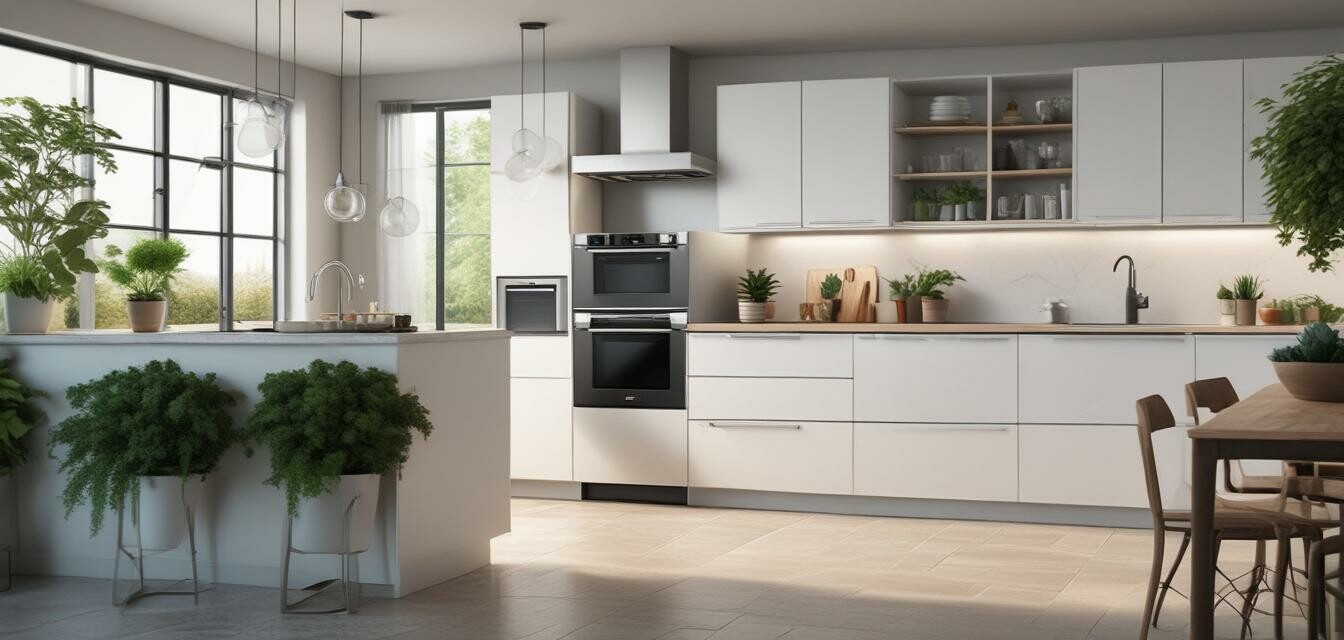
Shaping Sustainability: The Role of Appliances in 2024
- The growth of eco-friendly appliance technology is driven by consumer demand for sustainability.
- Energy-efficient appliances can significantly reduce energy consumption in homes.
- Technological innovations are paving the way for smarter and greener household appliances.
- Understanding the market trends can help consumers make informed purchasing decisions.
- Adopting energy-efficient appliances contributes to reducing carbon footprints at home.
As we venture into 2024, the landscape of energy-efficient appliances is evolving rapidly, reflecting the global shift towards sustainability. This transition is reshaping how appliances are designed, manufactured, and perceived in local markets across the world. In this article, we will investigate how the push for sustainability is influencing the development of energy-efficient appliances and what that means for consumers and the environment.
The consumer demand for sustainability
The demand for eco-friendly products has surged in recent years, prompting manufacturers to rethink their approach to appliance design. Consumers are becoming more aware of their environmental impact, leading to a greater emphasis on purchasing products that are less harmful to the planet. This trend is evident in various categories of home appliances, including:
- Refrigerators
- Washing machines
- Dishwashers
- Air conditioners
Impact of energy-efficient appliances
Energy-efficient appliances play a significant role in reducing household energy consumption. According to recent studies, households that switch to energy-efficient appliances can cut their energy consumption by up to 30% annually. This substantial reduction not only leads to lower energy bills but also contributes to decreased greenhouse gas emissions.
Technological innovations leading the way
In 2024, technological advancements are poised to enhance the energy-saving capabilities of appliances even further. Some notable innovations include:
| Innovation | Description |
|---|---|
| Smart technology | Integration of smart features that allow users to monitor and control energy usage remotely. |
| Advanced materials | Utilization of energy-efficient components that enhance durability and reduce energy loss. |
| Renewable energy compatibility | Appliances designed to work with solar panels and other renewable energy sources. |
These innovations not only improve energy efficiency but also streamline user experience, open new avenues for energy management, and encourage households to adopt sustainable practices.
Market trends and consumer considerations
As we look at the market for energy-efficient appliances, it's crucial to consider how trends may influence consumer choices. The following factors are shaping the decisions of buyers:
- Strong marketing of sustainability features
- Government incentives for purchasing energy-efficient products
- Rise in awareness of environmental statistics
- Focus on long-term savings versus initial costs
When choosing energy-efficient appliances, consumers are encouraged to consider the total cost of ownership rather than just the purchase price. Notably, investing in energy-efficient options leads to long-term savings on energy bills.
Sustainability efforts in the industry
Manufacturers are increasingly engaged in sustainability initiatives, which include:
- Reducing waste in production
- Researching sustainable materials
- Implementing eco-friendly packaging
- Creating programs for recycling old appliances
These efforts not only help reduce the environmental impact of appliance manufacturing but also align brands with the values of conscious consumers.
Tips for choosing energy-efficient appliances
- Look for the Energy Star label for assurance on energy savings.
- Compare the energy consumption ratings before making a purchase.
- Consider features that promote energy conservation, such as sensor-based programs.
- Research the manufacturer's sustainability practices.
The road ahead for sustainability in appliances
As we progress through 2024 and beyond, the emphasis on sustainability in the appliance industry is likely to intensify. Innovations in technology combined with evolving consumer expectations will play a crucial role in dictating the future landscape. The shift is not just a trend; it is becoming an integral component of appliance design and market strategy.
Conclusion
Understanding the ongoing shift towards sustainability in the appliance sector can empower consumers to make informed decisions. By choosing energy-efficient appliances, not only do you contribute to a greener future, but you also enjoy long-term savings and increased convenience. To explore more on how to maximize your energy savings at home, check out our tips and how-to articles on energy efficiency.
Pros
- Reduces energy consumption and costs
- Supports the environment and sustainability efforts
- Promotes modern technology and innovation
Cons
- Higher upfront costs compared to traditional appliances
- Limited availability in certain regions
